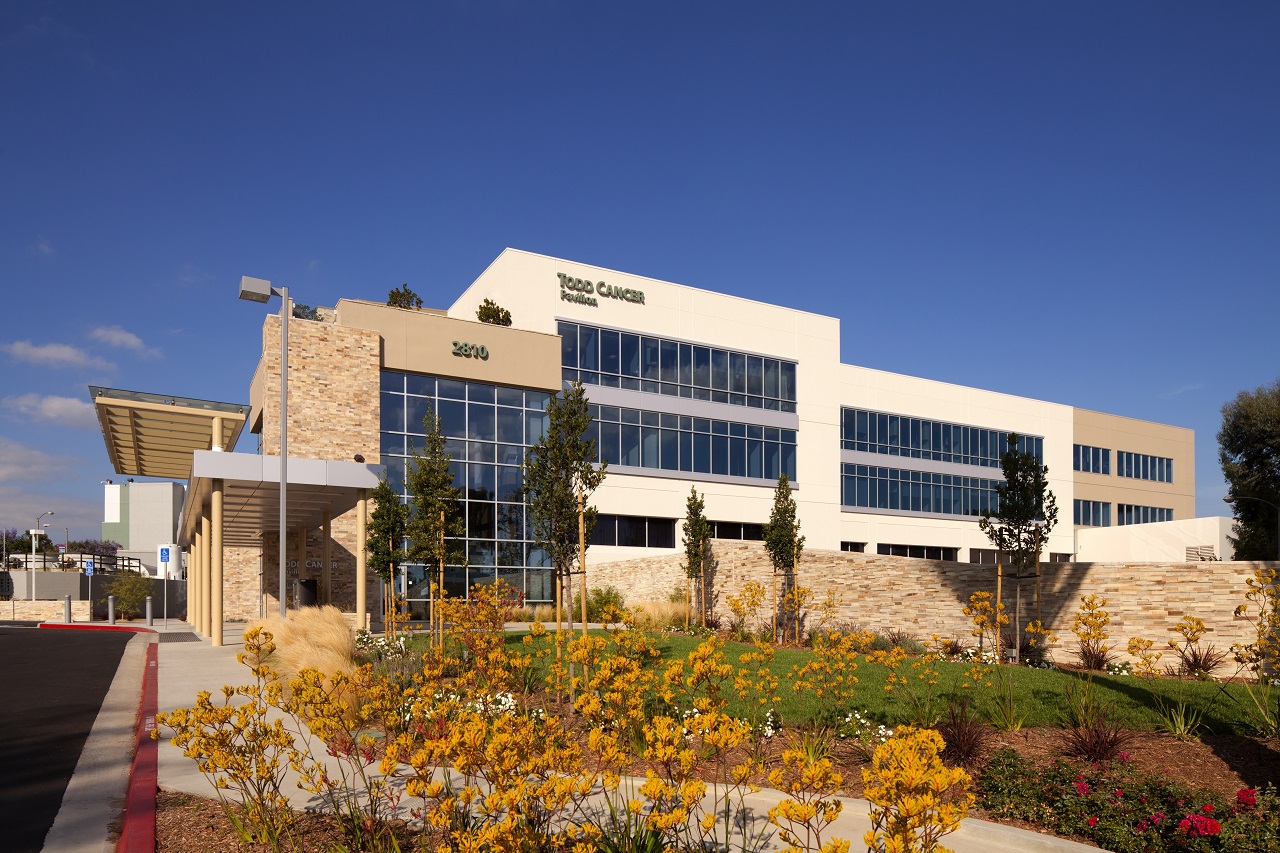$40,000 Community Partner Grant from Tower Cancer Research Foundation Supports Launch of New Adolescent and Young Adult (AYA) Survivorship Program
 Jonathan Jaques Children’s Cancer Institute at MemorialCare Miller Children’s & Women’s Hospital Long Beach and the MemorialCare Todd Cancer Institute at Long Beach Medical Center are the recipients of a $40,000 Community Partner grant from the Tower Cancer Research Foundation to support the launch of a new Adolescent and Young Adult (AYA) Survivorship Program, which is made possible through a unique collaboration between the two institutes. The two hospitals share a campus allowing for easy collaboration between both oncology teams.
Jonathan Jaques Children’s Cancer Institute at MemorialCare Miller Children’s & Women’s Hospital Long Beach and the MemorialCare Todd Cancer Institute at Long Beach Medical Center are the recipients of a $40,000 Community Partner grant from the Tower Cancer Research Foundation to support the launch of a new Adolescent and Young Adult (AYA) Survivorship Program, which is made possible through a unique collaboration between the two institutes. The two hospitals share a campus allowing for easy collaboration between both oncology teams.
About 70,000 adolescent and young adult cancer patients, aged 15 to 39 years, are newly diagnosed annually in the United States. Adolescent and young adults who have been treated for cancer are at risk for both medical and psychosocial health problems, called late effects.
These late effects can be life threatening even after they have been cured from their primary cancer and can include secondary cancers later in life, cardiac and pulmonary problems. This population faces other unique problems, such as fertility challenges, school and work re-integration challenges and mental health issues.
Many adolescent and young adult patients get lost in the health care system due to multiple barriers as they transition to the survivorship phase. They may have been treated in the pediatric setting and are aging out or they may have challenges with insurance coverage. In addition, having access to providers that have expertise in the specific risks for late effects due to aggressive cancers treatment are often limited.
“This program opens the door for both pediatric and adult oncologists to come together to focus on late-onset pediatric cancers and early-onset adult cancers. The collaboration between our Institutes can improve outcomes by identifying the most effective treatment plan for each patient that addresses their physical, emotional and practical needs.”
Medical Oncologist | MemorialCare Todd Cancer Institute | Long Beach Medical Center
Patients that receive care in this program receive a survivorship plan to support them through their late effects. Patients are seen by a multi-disciplinary team including a pediatric and adult oncologist, nurse practitioner and social worker during their follow-up appointments. If they develop a secondary cancer, they have immediate access to a team who meets regularly to discuss their care.
“This age group often gets left out of research studies, so they don’t have access to innovations that may improve both their survival and quality of life,” says Jacqueline Casillas, M.D., medical director, Jonathan Jaques Children’s Cancer Institute, Miller Children’s & Women’s. “With our program, we can now serve as a resource for our region by offering research trials that can address specific treatments and cancer survivorship care for adolescent and young adults. In addition, we will provide the critical resources for psychosocial support, including emotional support, school re-integration, work-place issues faced by cancer survivors.”
To achieve this, the two Institutes are developing a psychosocial mobile app. This mobile resource app is intended to be a useful tool for teaching young adults better financial and insurance habits — connecting them to financial counseling services — and can be an effective strategy for helping parents and teens connect to other personnel and provider services.
About Tower Cancer Research Foundation
Founded in 1996 by a group of dedicated physicians, patients, and volunteers, Tower Cancer Research Foundation has developed a legacy of supporting high-impact research and clinical trials. This includes research that resulted in the approval of 15 new cancer drugs and the expansion of treatment options for cancer patients all over the world. To carry on this tradition, each year the non-profit awards a multitude of different scientific grants from one-year $100,000 Career Development Grants to five-year $500,000 Senior Investigator Grants to $1,000,000 Multi-Disciplinary Discovery Funds.
While the foundation’s primary thrust is funding innovative research in the hope of eradicating the disease for future generations, Tower also provides support for those currently facing a diagnosis through the Magnolia House, the patient services division of the foundation. The aim of these educational support workshops and mind-body programs is to help survivors and their loved ones develop a physical and emotional tool kit to manage the challenges of the disease. In addition, Tower also awards Community Partner Grants to other non-profits in the Southern California area offering support programs to cancer survivors and their families. By partnering with these organizations, Tower is able to extend their reach and improve the lives of underserved survivors across the country.
All of these programs and grants are made possible by Tower’s extensive fundraising efforts including the highly successful Tower of Hope Gala. In the last decade alone, Tower has raised over $40 million. Much of this success can be attributed to the efforts of Tower’s fundraising groups, the Magnolia Council and Cancer Free Generation (CFG).